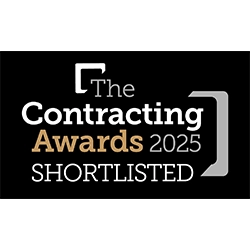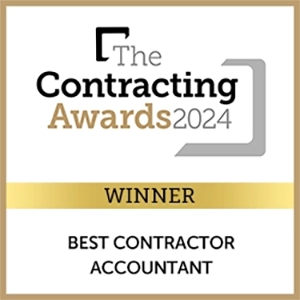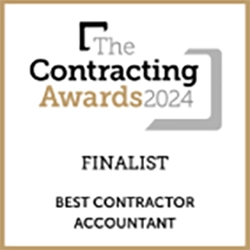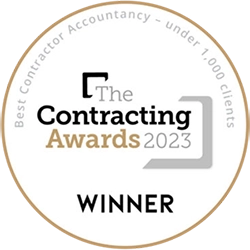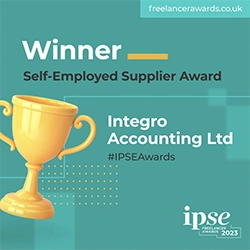As a Limited company contractor you are able to claim for a wider range of expenses than standard self-employed sole traders and this guide will breakdown what you can and cannot claim as a company expense in the eyes of HMRC. All rates as of 2019.
What is a company expense in the eyes of HMRC?
For an expense to be claimed under your limited company, it needs to be ‘wholly, exclusively and necessary’ for business purposes – so unfortunately you won’t be able to put your weekly food shop through the business!
It is possible to claim for expenses that are dual purpose. For example, perhaps you are an IT contractor and you need a laptop for work, but you’ll also use it for personal activities from time to time. Let’s say for arguments sake that you use the laptop for 75% work and 25% for personal and it cost you £1,000. You can claim the business proportion of the laptop as an expense – so £750 in this instance.
You only pay tax on your profits, so by incurring more expenses you will lower your profits and the tax that you must pay. Therefore, it is essential that you claim all the legitimate expenses that you can – nobody wants to pay more tax than they need.
Do I need to keep a copy of my company expenses?
We always recommend our clients keep a copy of every company expense they claim through the company. However, gone are the days where an old shoe box needs to be kept with the paper receipts. HMRC will allow electronic copies of all receipts. Our Integro Accounting clients benefit from using our recommended software program FreeAgent – this will allow all clients to scan in their receipts and keep copies digitally. For more information on FreeAgent click here.
Limited company expenses examples
We have put together a few key limited company expenses that most contractors tend to claim. Everyone is different so some of the below may or may not be applicable to you. Always speak to your accountant to find out more about expenses if you have any questions.
Travel & accommodation
Travelling to a different place of work means you’ll be able to claim the cost of travel as an expense. If you are using your own car you can claim 45p per mile up to 10,000 miles and get your limited company to reimburse you. This covers fuel and running cost of your own personal vehicle, and can not be used in conjunction if purchasing a vehicle through the company.
Please speak to your accountant before purchasing a ‘company vehicle’ – they can advise on the advantages and disadvantages of using one along with tailored advice.
If you are travelling by train or plane you can claim back the cost of the ticket.
Sometimes you might be required to stay overnight, which you can also claim back as a business expense – just don’t go booking a 6 star hotel as HMRC may argue that it isn’t necessary.
Other allowable expenses include:
- Parking cost
- Overnight business trip meals
- Train, bus, air and taxi fares
Use of a home office
Claiming expenses for using your home office tends to work in one of two ways. The most common is to claim a flat rate of £18 per month, however another approach is to analyse your bills and calculate how much extra you pay out working from home – these excess amounts can then be reclaimed.
If you choose to go with the latter option it is important to remember that you can only claim for expenses that you wouldn’t have occurred if you weren’t working from home. Things like inflated utility bills are fine, but you can’t claim for council tax, rent or mortgage payments, as you would have had to pay for these already.
Phone bill
If you have a personal phone where a percentage is used for company calls, a portion of the usage for data and call time can be claimed as a company expense.
Using a business phone means you can claim the handset and monthly tariff cost as an expense, however you need to provide proof that it was purchased by the company and for business purposes.
You cannot claim for a phone contract that isn’t held in the business’ name, so it’s worth bearing this in mind next time you think about getting a new phone.
Insurance
As a contractor, it is advisable to take out certain types of insurances for your company. The most common being professional indemnity and public liability insurance. You may think that the last thing you want your hard earned money to go on is insurance, but consider, would you sacrifice home insurance? It is worth buying for the peace of mind if nothing else – also some clients won’t work with you if you don’t have insurance so always check your contract before starting.
As insurance is something that is directly related to your business, you’ll be able to claim all your expenses as a company expense and offset the total cost against your tax liability.
If you are in need of limited company insurance we recommend the following companies who offer extensive and competitive packages:
Professional memberships
There are bound to be communities or unions in your field that you’d like to be a member of – they are a great chance to develop your skills, network and keep up to date on the latest news. Most of these professional groups will require you to pay a fee to register and the full cost of this can be claimed.
Training
As a contractor your clients won’t be sending you on training courses, so it is up to you to search for the right courses and pay for them yourself. The good thing is that if the course is relevant to your field, you can claim the full cost as a business expense. Specific rules and regulations do apply, so of course please consult with your accountant for further information.
IT equipment
A common expense, no matter what industry you work in, is IT equipment. Whether you need a computer, printer or tablet, if you require it for business purposes you’ll be able to put it through the business – just remember that if it is a dual use item you’ll only be able to claim for the percentage it is used for work.
Annual event allowance – Staff event, entertaining and Christmas parties
The most common and most popular company expense queried by our clients is hosting a Christmas party. As a limited company you are entitled to £150 annual event allowance. This is £150 per head for the company direct with the additional bonus of a using the same allowance for a plus one. This is restarted every tax year from the 6th April.
The above is just some of the most common contractor expenses, so any further information your require about expenses please contact your accountant or call 0207 0962659 where a member of our team can help you. Alternatively email christian@integroaccounting.com for any general enquirers.
Why choose Integro Accounting?
Integro Accounting provide a fixed fee accountancy service to contractors, freelancers and small business owners. Integro accounting was founded on the word integrity. Clients rate us 5/5 on Google and we pride ourselves on building a completely transparent and personal relationship with our clients. Our all inclusive packages include:
- Fixed-fee pricing – no hidden charges, one comprehensive package.
- Your own dedicated accountant – an expert accountant with you every step of the way.
- Unlimited face to face meetings – face to face and virtual meetings available across the UK.
- Award winning accountancy software – a FreeAgent licence provided to all clients.
Speak to one of our expert accountants today on 0207 0962659 for more information on how we can help you.

